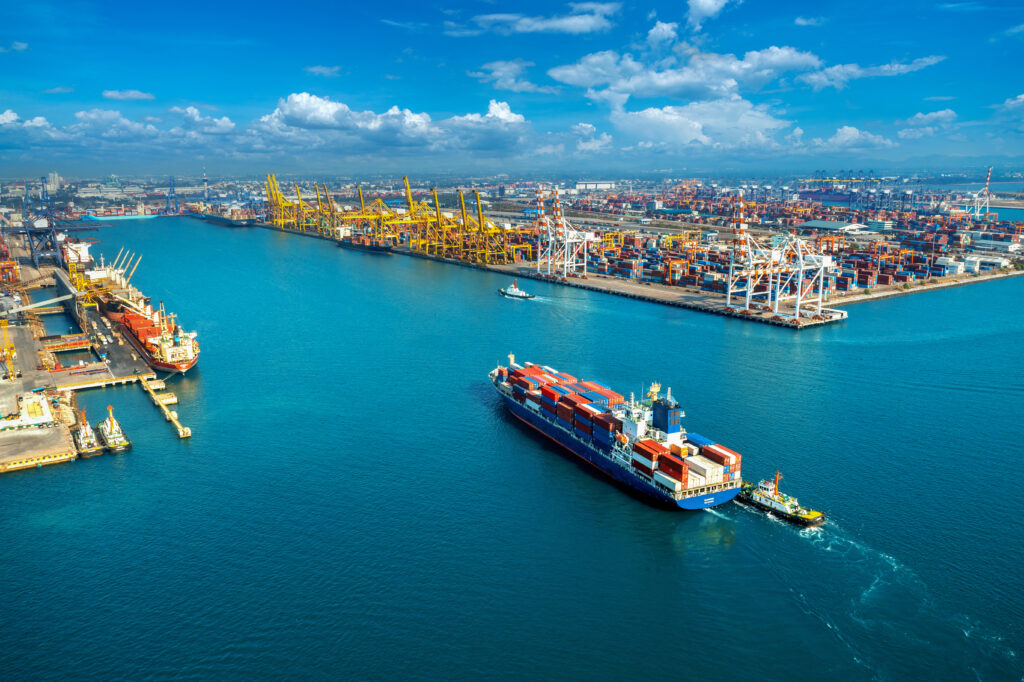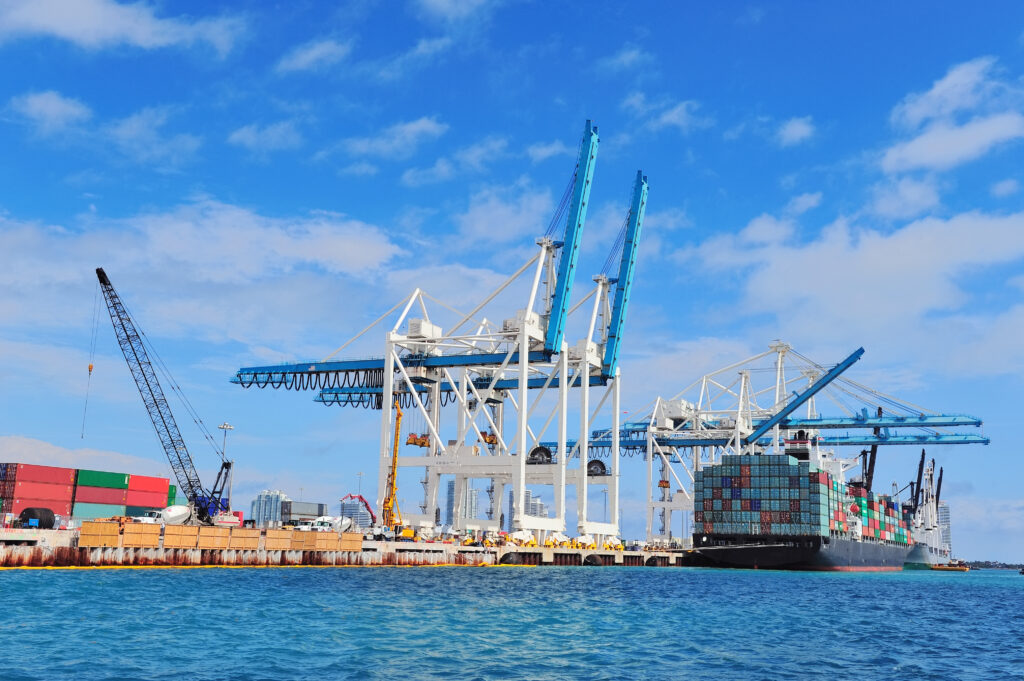
Freight News
The Role of Technology in Modern Door-to-Door Sea Freight Services

In today’s fast-paced world, the demand for efficient and reliable transportation of goods across the globe is more critical than ever. Door-to-door sea freight services have emerged as a popular solution for businesses seeking to transport goods seamlessly from one point to another. The integration of technology in ocean freight services has revolutionized the way goods are shipped, providing a multitude of benefits that enhance efficiency, transparency, and reliability.
Understanding Door-to-Door Sea Freight Services
Door-to-door sea freight services refer to a comprehensive logistics solution where goods are transported from the sender’s location to the recipient’s doorstep via sea routes. This service encompasses various stages, including pickup, customs clearance, sea transportation, and final delivery. Technology plays a pivotal role in streamlining these processes, ensuring that goods reach their destination promptly and securely.

The Impact of Technology on Ocean Freight Services
Enhanced Tracking and Visibility
One of the most significant advancements in door-to-door sea freight technology is the ability to track shipments in real-time. With the help of GPS and IoT devices, businesses can monitor the location and status of their shipments throughout the entire journey. This level of visibility not only provides peace of mind to shippers but also allows them to make informed decisions based on real-time data.
Furthermore, advanced tracking systems can alert stakeholders about potential delays or issues, enabling proactive measures to be taken to mitigate risks. This transparency is invaluable, particularly for businesses dealing with time-sensitive or high-value goods.
Automation and Efficiency
Automation has become a cornerstone of modern ocean freight services. From booking and documentation to customs clearance and inventory management, automation streamlines various processes, reducing the likelihood of human error and speeding up operations. Automated systems can handle repetitive tasks, freeing up human resources to focus on more strategic activities.
For instance, automated booking platforms allow businesses to schedule shipments, receive quotes, and manage documentation with just a few clicks. This not only saves time but also ensures accuracy and consistency in the shipping process.
Improved Communication and Collaboration
Effective communication is crucial in the logistics industry. Technology facilitates seamless communication between all parties involved in the shipping process, including shippers, carriers, customs officials, and end customers. Digital platforms and communication tools enable real-time collaboration, ensuring that everyone is on the same page and any issues are addressed promptly.
Additionally, technology enables the sharing of critical information, such as shipping documents and compliance requirements, in a secure and efficient manner. This reduces the risk of paperwork errors and ensures compliance with international regulations.
Innovations Shaping the Future of Sea Freight
Blockchain Technology
Blockchain technology is making waves in the logistics industry, offering a secure and transparent way to manage transactions and documentation. In the context of ocean freight services, blockchain can enhance security and traceability, reducing the risk of fraud and ensuring the integrity of shipping records.
By creating a decentralized and tamper-proof ledger, blockchain allows stakeholders to access and verify information about shipments, contracts, and payments in real-time. This level of transparency fosters trust and collaboration among all parties involved.
Artificial Intelligence and Machine Learning
Artificial Intelligence (AI) and Machine Learning (ML) are transforming the way sea freight operations are managed. AI-powered systems can analyze vast amounts of data to optimize routes, predict demand, and improve decision-making. Machine learning algorithms can identify patterns and trends, enabling businesses to anticipate potential challenges and adjust their strategies accordingly.
For example, AI can help optimize shipping routes by considering factors such as weather conditions, port congestion, and fuel consumption. This not only improves efficiency but also reduces costs and environmental impact.
Sustainable Shipping Practices
As environmental concerns continue to grow, the maritime industry is under pressure to adopt sustainable practices. Technology plays a crucial role in promoting eco-friendly shipping solutions. Innovations such as cleaner fuels, energy-efficient vessels, and emissions tracking systems help reduce the environmental footprint of sea freight operations.
Moreover, digital platforms enable businesses to measure and report their carbon emissions, facilitating compliance with international environmental standards and demonstrating their commitment to sustainability.

The Benefits of Embracing Technology in Sea Freight
Cost Savings
By leveraging technology, businesses can achieve significant cost savings in their sea freight operations. Automation reduces labor costs, while optimized routes and efficient processes minimize fuel consumption and other operational expenses. Furthermore, real-time tracking and visibility help prevent costly delays and disruptions, ensuring that goods are delivered on time and within budget.
Enhanced Customer Experience
In today’s competitive market, customer experience is a key differentiator. Technology empowers businesses to provide exceptional service by offering real-time updates, accurate delivery estimates, and personalized communication. By keeping customers informed and engaged throughout the shipping process, businesses can build trust and loyalty, ultimately driving repeat business and positive word-of-mouth.
Competitive Advantage
Incorporating technology into sea freight operations gives businesses a competitive edge. By streamlining processes, improving efficiency, and enhancing transparency, companies can outperform competitors and capture a larger share of the market. Moreover, the ability to adapt to changing market conditions and customer demands positions businesses for long-term success.
Conclusion
In conclusion, the role of technology in modern door-to-door sea freight services cannot be overstated. From enhancing tracking and visibility to promoting sustainable practices and improving customer experience, technology is reshaping the landscape of ocean freight services. By embracing these innovations, businesses can streamline their operations, reduce costs, and gain a competitive advantage in the global marketplace.
As the logistics industry continues to evolve, the integration of cutting-edge technologies will remain a critical factor in driving efficiency, transparency, and success in door-to-door sea freight services. Embracing these advancements is not just a choice but a necessity for businesses looking to thrive in the ever-changing world of global trade.
Revolutionize Your Shipping with Express Freight Management!
Ready to transform your shipping logistics and gain a competitive edge in the marketplace? Look no further than Express Freight Management. With our cutting-edge technology solutions and unparalleled expertise, we are prepared to enhance your sea freight operations from start to finish. Streamline your processes, increase efficiency, and maximize your profits by choosing Express Freight Management. Contact us today to find out how we can tailor our services to meet your unique needs and propel your business to new heights in global trade.
